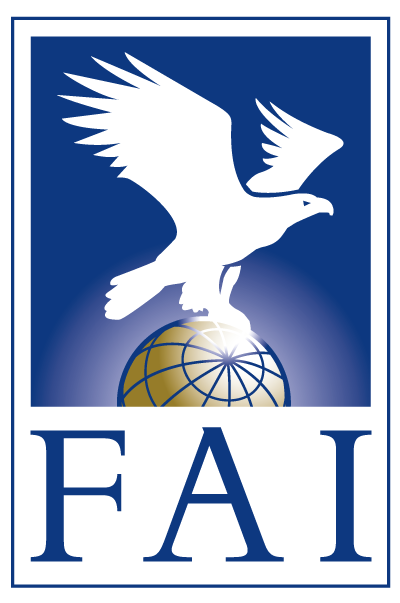29th Coupe Aéronautique Gordon Bennett
Geneva, Switzerland, September 28, 1985
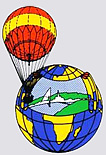
Results
| Rank | Pilots | Country | Score | Duration | Landing |
|---|---|---|---|---|---|
| 1 | Josef Starkbaum Gerd Scholz | 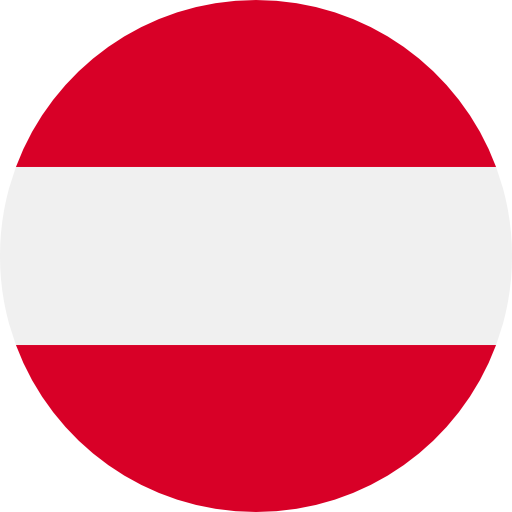 AUT AUT | 342.00 km | 21:09:00 | Sanary-sur-Mer, Toulon (FRA) |
| 2 | Stefan Makne Waldemar Ozga | 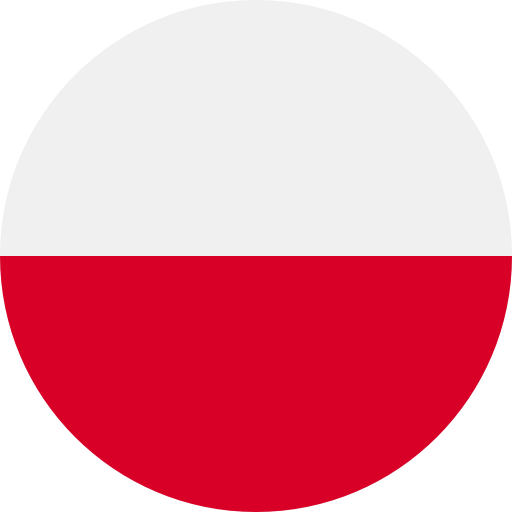 POL POL | 325.00 km | 22:58:00 | Toulon (FRA) |
| 3 | Karl Spenger Martin Messner |  SUI SUI | 323.00 km | 13:50:00 | Bouche du Rhone (FRA) |
| 4 | David Levin Frank Rider |  USA USA | 316.00 km | 16:38:00 | Istres (FRA) |
| 5 | Ireneuz Cieslak Jerzy Czerniawski |  POL POL | 310.00 km | 13:00:00 | Istres (FRA) |
| 6 | Hans Akerstedt Jan Balkedal | 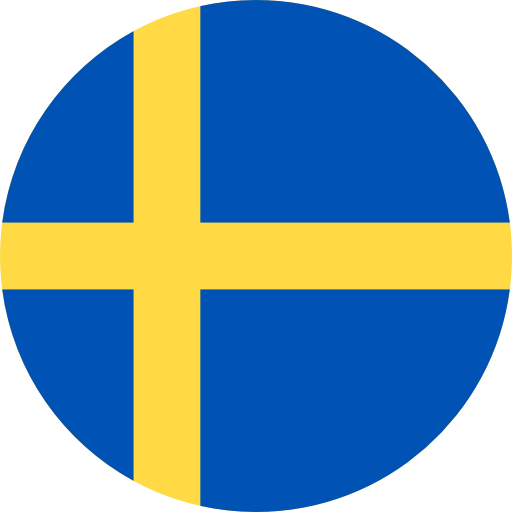 SWE SWE | 307.00 km | 21:07:00 | Marignane (FRA) |
| 7 | Silvan Osterwalder Gerold Signer |  SUI SUI | 306.00 km | 14:52:00 | Miramas (FRA) |
| 8 | Jean-Jacques Muchery Thierry Villey-Desmeserets |  FRA FRA | 305.00 km | 00:00:00 | Istres (FRA) |
| 9 | Peter Peterka Werner Pfenninger |  SUI SUI | 304.00 km | 13:44:00 | St.Martin-de-Crau (FRA) |
| 10 | Jim M. Schiller Randy Woods |  USA USA | 294.00 km | 18:45:00 | Tarascon (FRA) |
| 11 | Volker Kuinke Helma Sjuts |  GER GER | 290.00 km | 21:00:00 | Lambesc (FRA) |
| 12 | Jojo Maes Wulf Bergner |  GER GER | 208.00 km | 14:25:00 | Montelimar (FRA) |
| 13 | Wilhelm Eimers Klaus Marienfeld |  GER GER | 68.00 km | 44:20:00 | Chambery (FRA) |
Book Article
From the Book: Die Gordon Bennett Ballon Rennen
(The Gordon Bennett Races) by Ulrich Hohmann Sr
Start in Geneva, September 28th
In 1985, a series of victories without precedent , even in the Gordon Bennett races began. Ernest Demuyter had won six times, but not in a row and with different partners. Austrians Joschi Starkbaum/Gert Scholz, 1984 already on rank 2 at their first competition, became unbeatable for the next six years. In the beginning, the material was not important, they flew in rented balloons until 1987. In 1988 they got their own balloon, POLARSTERN.
Switzerland had gained its third victory after 1908 and 1921. In 1985 the invitation was to Geneva. The Swiss could not have selected a better place. This international town of an Henri Dunant, former headquarter of the League of Nations, gave back to the Gordon Bennett race the flair and importance of the old days. For all who were present, it was impressive, how the balloons were carried to the common launch platform in a five minutes sequence and then disappeared in the night followed by the tunes of their national anthem. 12 of 13 balloons went to high altitudes at once. There they found the north-easterly wind, carrying them down the river Rhone. In the early morning, they entered the Mistral and flew southwards, reaching the Mediterranean Sea in the afternoon. Those, who had launched a little later or who had not found the faster wind at once in the morning, was unlucky. The wind calmed down and later turned via West to South. Then they had to land quick, so not to give away a part of the distance they had already achieved.
Austrians Starkbaum/Scholz flew to the limit. At Sanavy sur Mer near Toulon they found the place, which gave them the victory with 342 kilometres in 21:09 hours. Swiss Spenger/Messner tried everything, to repeat the victory of the year before, but their landing place was a little more to the west and even 2 kilometres shorter than Polish Makne/Ozga. The three top finishers were, with the exception of the Polish co-pilot identical to the year before, only the ranks had been changed.
The Germans Wilhelm Eimers/Klaus Marienfeld tricked themselves out. After the launch, they stood over Lake Geneva at a low altitude the whole night. Wilhelm Eimers had the intention, to catch up the field from the back. "Let them all land, then I know, where to fly to make some more distance" he thought. In the morning, he went off for his journey, and found out in the evening, that the wind was carrying him back. Realizing, that he could not win anyhow, he turned the race to an endurance flight for his own. With 44:20 hours he made the longest time since the restart in 1983. The 68 kilometres he achieved could have been made easily by walking in the same time.
In the third race since the restart, German pilot Volker Kuinke shall report. In this race he finished "only" 10th, but there were no large differences to those further ahead. Volker Kuinke was the youngest pilot among the competitors, he was 24 years old. As co-pilot he had chosen Helma Sjuts, almost exactly 42 years older and the only woman in the race. This unequal pair harmonized wonderful and is still today getting into raptures about the:
Miraculous Balloon Voyage to the Provence
Gordon-Bennett 1985 was for me:
- Great tension and anticipation,
- intense preparation (including staying not less than 15 hours in the balloons envelope to close even the smallest hole),
- enormous financial expenses, I could not have spent alone without the help of Helma and our crew!
Weather in Geneva was super, when the balloons were inflated for the Gordon Bennett race. Everything was organized perfectly, I was surprised. Also the crew of D-DÜSSELDORF was, like all the others, in the best mood.
There was a special atmosphere on the launch field, a wonderful situated sport park in the southeast of Geneva. Many volunteers inflated the balloons, all coming from Europe. Some would be flown by Americans, to save the huge transportation costs, they preferred, to hire balloons here.
At the briefing, our mood was no longer as light as before. We learned, that the high pressure weather would continue, but with only little wind from Northwest. This was bad news for us. We had figured out before where we would love to fly. Everything but not a Northwest, pushing us to the mountains at night. And now exactly Northwest! Also later, the forecast of the meteorologists did not change. The tension was also felt with other competitors. The mood changed visible. Autographs, easily given before, now became a nuisance.
Helma and me had to care only a little for inflation. Everything was done without problems by our crew, with Bernd Dechene as balloonmeister. The time for take-off came closer, D-DÜSSELDORF had drawn number 3 for take-off.
Nervousness could be felt by many competitors. One could not agree, which flying tactic would be better: Either to climb to high altitudes at once, to stay out of the humid air close to the ground, which would mean to sacrifice a lot of ballast at the beginning, or to fly low, but also slower, so not to fly to the Alps at night, but this would also cost a lot of ballast. Both tactics had advantages and disadvantages. Helma and me were afraid about heading for the Mont Blanc at night. Not afraid of the mountain itself or the high altitude, but afraid that we would not manage it, to reach the necessary altitude with a 1000 cubic-meter balloon of the old construction. I did not believe, that I could climb over Mont Blanc with 22 bags of ballast and 3 containers of water. The balloons of other nations, with light material and nets made from plastic are much better saving ballast as our German balloons.
Back to our flight: After the launch we wanted to make the decision, to fly high or low. Helma and me together prepare the basket. We both chase away a media girl from America, who had fallen in love with Helma, the only female competitor. Polite but firmly I told her, that at the last preparations for launch, we neither have the time nor the nerves for an interview.
Ten minutes before launch our collision warning lights fail. One of the water containers was leaking and the plug must have fallen to the water puddle on the basket floor. The result: One fuse after the other burned through. Willi Eimers interrupts his launch preparations at D-KARSTADT to help us. He managed, to make the lamps burn again. Then the documents of the balloon are missing. Heinz-Georg from our crew rushes to the car, parked 300 meters away. Well, no start of a balloon ever had cost me more nerves than this one in Geneva.
Finally, it is our turn. D-DÜSSELDORF is carried to the launch platform, a small field illuminated by floodlights, surrounded by officials, the press and spectators. By loudspeaker everything important about the content of the basket and the yellow ball above it is announced. At the same time, my launch aid goes through a check-list with me. O.K., everything is on board!
After the balloon is levelled out, the national anthem is played. I see eyes twinkling, to wish us luck. A newspaper reporter gives me her card, flashlights flare. I am too much under stress, to realize everything around and the solemn take-off. Right after lift-off I become myself again. Relieved, exhausted, but also with big joy: We had managed it, to come into the air together in a Gordon Bennett race, the youngest and the oldest competitor!
The many preparations, telephone calls, two training flights come to my memory again. We had learned to work hand in hand, knew each other better now, let’s hope this will payoff now.
After us, the French balloon takes off. Softly the sound of the Marseillaise and the applause of the spectators reach us.
To our relief we realize, that the wind does not come from northwest as forecasted, but from north-north-east. We fly very low. The balloons above us are faster, so up to them! We manage to pass the first obstacle, the Mont Salève ridge. Everywhere we now see little valleys, villages, bedded in the large blocks of the mountains. The friendly moon shows up in full size and illuminates everything. A mysterious game between moonlight, shadows and darkness. Huge fir trees, looking like frightening giants. For me, the aesthetic worth of a balloon flight is very important. This fascinating flight was like a dream.
We could not see many of our competitors. I try to keep the balloon in a layer, good for our intentions, which was not so easy. Flying a balloon in the mountains is something completely different to flying on the plains, as we were used to. From everywhere, close by and far away, we hear cow bells ringing, many voices and unreal it sounds from all sides.
We keep our direction to the southwest. Soon we imagine about landing on a beach in Portugal. D-DÜSSELDORF slips down to a valley. Underneath the rushing of a creek. Not far from us one other balloon, but no trace of the others. We approach the village Aix-les-Bains. Over the huge Lac du Bourget we stop. The waves on the lake and the pale moonlight, broken by the movement of the waves indicate, that there is more wind down there. I allow the balloon to fall, and on it goes. On the shore, steep mountain slopes rise. The balloon follows the terrain by itself. But still we need too much ballast. Helma is busy fixing our position with the VOR. It worked perfect.
At Les Abrets, from nowhere, we loose the wind. Very slowly, we fly to one or another direction. We don’t like this, so we climb higher. The result is little change. The terrain underneath becomes more flat. Ground fog lays like a big carpet on the landscape. Sometimes, the rooftop of a farmhouse sticks out of the fog. We hover above a landscape out of a fairy tale. From far away, I hear a church bell ringing, it is 7 a.m. Everything else is quiet. Helma and I discuss, what would be best way to come out of this unfortunate situation, D-DÜSSELDORF stands almost still. The farm dogs around must have heard our talks, and soon they all bark.
We have to sacrifice some ballast, but at the altitude, it becomes a little faster. With about 20 kilometres an hour, we now fly to the west. At daybreak, I take a little rest. When I look over the edge of the basket an hour later, a gigantic view is offered to me: The whole chain of the French Alps covered with blazing morning light lays to our feet. The power of the sun warms up the gas and pulls up the balloon to 2000 meters. Rising above all. Mont Blanc shows us his face. What a huge mountain! We now swim on an inversion layer, without using any ballast. But we already know, that we would not be able, to stay another night. Our hope is, to continue at 30 kilometres an hour to 210 degrees and to fly as far as possible to the south, eventually to the shore of the Mediterranean Sea.
Crossing Grenoble D-DÜSSELDORF flys to the valley of the river Isère. Slowly, the sun warms our bones. Far back, I see another competitor, it is D-GATZWEILER. No trace of the other balloons. The wonderful view of the Alps captures us. We cross huge valleys, see little villages bedded in there, and the huge chains of the Pre-Alps. The flight becomes faster and faster. Our balloon had already reached the valley of the Rhone. We leave behind the Pre-Alps. Under us a wonderful landscape. Suddenly, we see a balloon, lying down there on a field. With the binoculars we find out, it is D-AUGSBURG. Jojo Maes calls us by radio: We learn, that also he had not seen another balloon the whole day. Ground wind is very gusty, we shall take care! Really, very quickly we now fly down the Rhone – the Mistral! I have to contact Marseille Info by radio now, this is the direction we are heading. I enjoy the flight. When will I have another chance, to fly across the Provence? A landscape, I’ve never before seen from a balloon: Very old little villages and towns, one feels pushed back to the times of the Roman Empire. Everywhere vineyards, olive trees, fruit plantations. The fields are not laid out straight to a plan, but are almost a labyrinth of geometry. In between, like snakes in the fields, hedges and alleys.
Slowly we approach Avignon. I love to see all that, I had once admired on a vacation. We can well see the Palace of the Pope and the Pont d'Avignon. On it goes, southwards. Now we think about landing in the Camarque and I remember the movie "Voyage in a balloon", but it should turn out completely different. The sun is already low and makes the Rhone, rushing to its mouth, golden. Except D-GATZWEILER and D-AUGSBURG who had already landed, we had not seen a single balloon the whole day. Had they all landed? Our faithful ball can’t keep the altitude any longer. The gas cools down, this miraculous day comes to its end. Soon D-DÜSSELDORF has dropped a few hundred meters, and the flight direction changes to our disadvantage. Not further on to the south, in the direction of the Camargue, no, we suddenly fly east-south-east, every meter shortens the distance, we had already made, and I have almost no more sand, to put this to an end. So down! Our chase-crew has managed to get visual contact, wonderful for a fast landing. In a low altitude we cross Salon de Provence exactly to the east. Damn... no possibility for landing in sight. Everywhere smaller and larger power lines, and our high speed! Always a huge field comes in sight, there is a power line on it or D-DÜSSELDORF passes close by. I already think about landing in the pine forest, when finally some huge fields appear in our direction. Dumping the trail rope and nothing but down. At first, the trail rope is pulled through a vineyard, a road comes in sight, on which, like ordered there, two men stand, who promptly grip the rope, and are pulled across an harvested field of sunflowers. Only with that I manage a smooth landing with the vent.
We had managed it, mother earth got us back! We were lucky and satisfied. Helma and me changed pulling the vent-line. The balloon laid almost empty on the field, our two helpers hold the basket. Suddenly, the basket turned over. I was astonished and turned it up again. Bang, it turned over again. Helma did not like this game, crept out of the basket and realized, that one of our volunteers thought, that only with a turned over basket the balloon could be deflated correctly. Helma took the strong Monsieur with her to look for the chase crew, because of flying low and fast in the mountainous area, radio contact had been interrupted. Also, we had landed in a very lonesome, remote area. Meanwhile, I showed the two other guys from the Provence that stood with me, how the game "packing a balloon" works. Doing this, the mosquitoes, like on my vacation in Arles, loved me very much. Fiercely I beat at them, while I tried to explain the two helpful Frenchmen, how to fold such a balloon. The approaching darkness made this more difficult. When Helma returned with Monsieur we had packed the envelope rough and ready. Helma looked a little frustrated, for the chase crew had not yet reported at the relay station in Geneva. Well, Helma had phoned our landing report. Now I tried my luck. Together with Monsieur Richaud, who had brought his daughter with him to the landing place as reinforcement, we went off. Even having had French lessons at school for eight years, I had enormous problems with communication. Also Helma, at least retired director of a high school, did not deal very well with the dialect of the Provence.
Reaching the home of Monsieur, I was welcomed by a little dog, who growled at me and showed his teeth. Monsieur Richaud wanted to convince me, that with the CB radio in his car, I could surely reach my chase-crew. I talked with mouth, hands and feet to make him clear, that he can’t talk with the CB-radio to a jumbo jet above us. I think, he finally understood it. – Helma had given the phone number of the Richaud family to Geneva, and a little later, the chase crew reported. We agreed, to meet in the village of Lambesc close by, because the house of the Richauds was very hidden and remote, far away from roads, in the middle of a pine-forest. Meanwhile, Monsieur offered me a cup of coffee and asked me, if we want to stay the night at his house. I did not know, if I should agree, because the house did not look like having lots of room to sleep. He realized my hesitation: "No, not here! If have an empty vacation house near by, there is enough space." I accepted this with thanks. With Monsieur Richaud and the chase crew, we met at Lambesc we returned to Helma, who had fallen asleep next to the basket. Together we went to the wonderful vacation house, where Madame and daughter Richaud had already cared for a meal and the beds. After a shower for refreshing and the dinner we slept deep in the huge French king-size beds, while the full-moon looked through the window, wishing us a good night.
The Gordon-Bennett race 1985 was over for us. For Helma and me, it had presented a balloon flight, any pilot would dream of. The next morning, we packed the balloon completely, took some honey from Monsieur Richaud with us and finally went home. Arriving at Geneva, we looked to the map on which all the landing-spots of the balloons were marked. Of course, we’ve had bad luck. If the wind had not come so directly from the west during our landing, we could have landed more south and would have performed better. But one should consider the distances. There are only 35 kilometres between second and tenth place, not very big dimensions. Whatever people may tell – Helma and me have done everything we could do. And there is a much more important result: In this week when we all were together, crew and pilots, we understood each other extremely good and became friends – even or because of the big difference in age. I think, this is much more important and of more value than any better rank in the race.
Volker Kuinke

